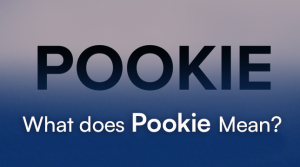The term “Pookie” is widely used in popular culture and is often associated with affectionate nicknames or cute terms of endearment. The word is flexible in its usage and can be utilized in various contexts depending on the relationship between the individuals involved. Primarily, “Pookie” is utilized as a pet name, typically between romantic partners or close friends, reflecting a warm, intimate bond. It can also be used to refer to someone in a playful or teasing manner. For instance, a parent might call their child “Pookie” when they’re behaving in a silly or adorable way. If you’re planning to use “Pookie” in your conversation, it’s crucial to consider the context, the nature of your relationship with the person you’re addressing, and their comfort level with such nicknames.
Moreover, “Pookie” is also a character name in some books and movies, such as in the comic strip “Garfield”, where Pookie is the name of Garfield’s teddy bear. In the movie “New Jack City”, Pookie is a character struggling with substance abuse. However, these usages are specific to these narrative contexts and do not generally influence the term’s use in everyday language.
In terms of pronunciation, “Pookie” is pronounced as “poo-key”, with emphasis on the first syllable. If you’re using “Pookie” as a pet name, it’s usually used in place of the person’s real name, and can be used to start a sentence, in the middle or at the end, based on your sentence structure. For example, “Hey Pookie, how was your day?” or “I’ve missed you, Pookie.”
In conclusion, the term “Pookie” is a multifaceted word with a variety of uses, predominantly as a term of endearment. Its use should be tailored to the specific dynamics and familiarity levels of your relationship with the person you’re addressing. It’s a casual, playful term that adds a touch of warmth and affection to your conversations.

Key Points to Remember
When addressing the theme “Key Points to Remember,” it is essential to underscore the importance of clear understanding, retention, and application of knowledge. These key points could be related to any subject matter, such as academic lessons, professional guidelines, personal development principles, or even life lessons. The main goal is to emphasize, learn, and remember these points, which can significantly contribute to one’s growth and success.
First and foremost, a thorough comprehension is fundamental. It’s not enough to merely memorize the points; you must also discern their meaning and relevance. For example, a student might need to recall critical points from a history lesson for an examination. However, the actual value lies not in remembering the dates but in understanding the events’ significance during that period and how they shaped society.
Retention of these key points is equally important. Implementing effective learning techniques, such as repetition, association, and visualization, can significantly enhance memory and recall. For instance, in a corporate setting, an employee may be required to remember specific company policies or procedures. Using these techniques, they can ensure they recall the essential points when needed and apply them effectively in their work.
Lastly, the practical application of these key points is what ultimately determines their value. Knowledge that remains unused is of little benefit. Therefore, once you have understood and remembered these points, you should strive to apply them in appropriate situations. For instance, if you learn key points about effective communication, you should try to incorporate them into your daily interactions.
In conclusion, the key points to remember are not just about memorization but also about understanding, retention, and practical application. As you navigate through different aspects of life, these points serve as guiding principles that can significantly enhance your performance and contribute to your overall success.
The Meaning of Pookie
The term “Pookie” carries various interpretations based on different contexts and cultures. It is often used as a pet name or term of endearment between loved ones, emphasizing affection and closeness. The name carries a certain level of intimacy, reserved for those with a deep, personal connection. For instance, parents might call their children “Pookie” as a cute nickname or spouses might use it as a playful, affectionate term. It’s also common in many cultures to use pet names like “Pookie” towards significant others to express love and affection.
In a different context, Pookie is a character from the 1991 film “New Jack City,” played by actor Chris Rock. The character is a significant one, depicting a person battling substance abuse, hence providing a stark view of the struggles faced by individuals in such situations.
Moreover, Pookie can also refer to a particular type of bear in the world of stuffed animals. Pookie bears are known for their unique design and high-quality material, making them a popular choice among children and collectors alike.
Despite its various interpretations, the common thread that connects all meanings of “Pookie” is a sense of familiarity and affection. Whether it’s a term of endearment, a memorable character from a film, or a beloved toy, the term “Pookie” is associated with warmth, love, and a sense of comfort. Hence, the meaning of Pookie transcends traditional definitions, encapsulating a wide range of emotions and experiences that differ based on individual perspectives and contexts.
Using Pookie in Conversations
Pookie is a term that has gained popularity in various social contexts and its usage in conversations can serve different purposes. Primarily, ‘Pookie’ is often used as an affectionate nickname, comparable to ‘sweetheart’ or ‘darling’, which can be used to enhance communication between close friends, family, or romantic partners. In this context, the use of the term can deepen the connection between individuals by adding an intimate, playful touch to their conversations. Moreover, within certain communities, the term Pookie has evolved to take on unique cultural connotations. It could be used to refer to a certain type of person or character, often in a humorous or sarcastic manner.
It is crucial to understand the context and the relationship between the parties in the conversation before using the term. Using ‘Pookie’ inappropriately or in a context where it is not understood or appreciated could potentially lead to confusion or miscommunication. Therefore, it’s recommended to use it with discretion, ensuring it aligns with the tone and nature of the conversation. Furthermore, while ‘Pookie’ might be widely recognized in some circles, it might not be familiar to everyone. Thus, using it in a diverse or formal setting might not be advisable. Instead, it is best suited for casual, informal conversations where both parties are familiar with the term and comfortable with its usage. In conclusion, the term ‘Pookie’, when used correctly, can add a unique flavor to conversations, but it is essential to use it judicious good judgment and cultural awareness.

Other Common Terms of Endearment
Terms of endearment are expressions used to convey affection and warmth towards someone. They are often used between individuals who share a deep and intimate relationship. These terms vary across different cultures, languages, and regions. In English, some popular ones include ‘sweetheart’, ‘honey’, ‘darling’, ‘love’, and ‘dear’. These are typically used between romantic partners, but they can also be used for family members, close friends, and children.
In Spanish culture, ‘mi amor’ (my love), ‘cariño’ (dear), and ‘corazón’ (heart) are frequently used. The French, known for their romantic language, use ‘mon amour’ (my love), ‘mon chéri’ (my dear), and ‘ma puce’ (my flea), the latter being an odd yet affectionate term. Italians also use their language of love to call their loved ones ‘caro’ (dear), ‘tesoro’ (treasure), and ‘amore’ (love).
In other parts of the world, there are terms of endearment that may sound peculiar to outsiders. For example, in Japan, ‘tamago’ (egg) is a term of endearment. They also use ‘anata’ which translates to ‘you’, but in a context of affection. The Dutch use ‘schat’ (treasure), and in India, ‘jaan’ (life) and ‘jaanu’ (dear) are popular terms.
These terms of endearment serve a crucial purpose in our communication. They convey love, affection, and closeness towards the person they are directed at. It’s a verbal expression of the bond two people share. These terms are not just restricted to romantic relationships; parents often use them for their children, and even friends use them for each other. They add a level of warmth, intimacy, and personalization to a relationship, making the other person feel cherished and valued.
In conclusion, terms of endearment are an integral part of our lexicon. They allow us to express our affection and love towards our dear ones in a unique and personalized way. Whether it’s a traditional ‘sweetheart’ or an unusual ‘my flea’, these terms carry a significant emotional weight and add a layer of depth to our relationships.
Alternate Interpretations of “Pookie”
“Pookie” is a term that carries a myriad of interpretations, varying based on cultural context, personal experiences, and individual perceptions. In some circles, it is a term of endearment, often used to refer to a loved one or a close friend. For others, it is a name given to a cherished pet, embodying a sense of affection and warmth. In popular culture, “Pookie” has made appearances as character names, such as in “New Jack City”, symbolizing a complex character with multifaceted personality traits. In the internet slang, it has been utilized to refer to certain types of pipes used for substance consumption. This multitude of interpretations associated with “Pookie” demonstrates the fluidity and dynamism of language.
It highlights how meanings are not always fixed and can evolve over time, influenced by different factors such as societal norms, media portrayals, and linguistic creativity. The interpretation of “Pookie”, therefore, is not confined to a single, universally accepted definition. Instead, it is a reflection of the diversity and complexity of human communication. The term “Pookie” personifies the idea that words are more than mere assemblages of letters. They are vehicles of expression, shaped by and shaping the world around us. Consequently, understanding the different interpretations of “Pookie” can offer a valuable insight into the fluidity of language and its power in shaping human experiences and relationships. Therefore, the term “Pookie”, in its various interpretations, is a testament to the fascinating intricacies of language and the human capacity for creativity and redefinition.
